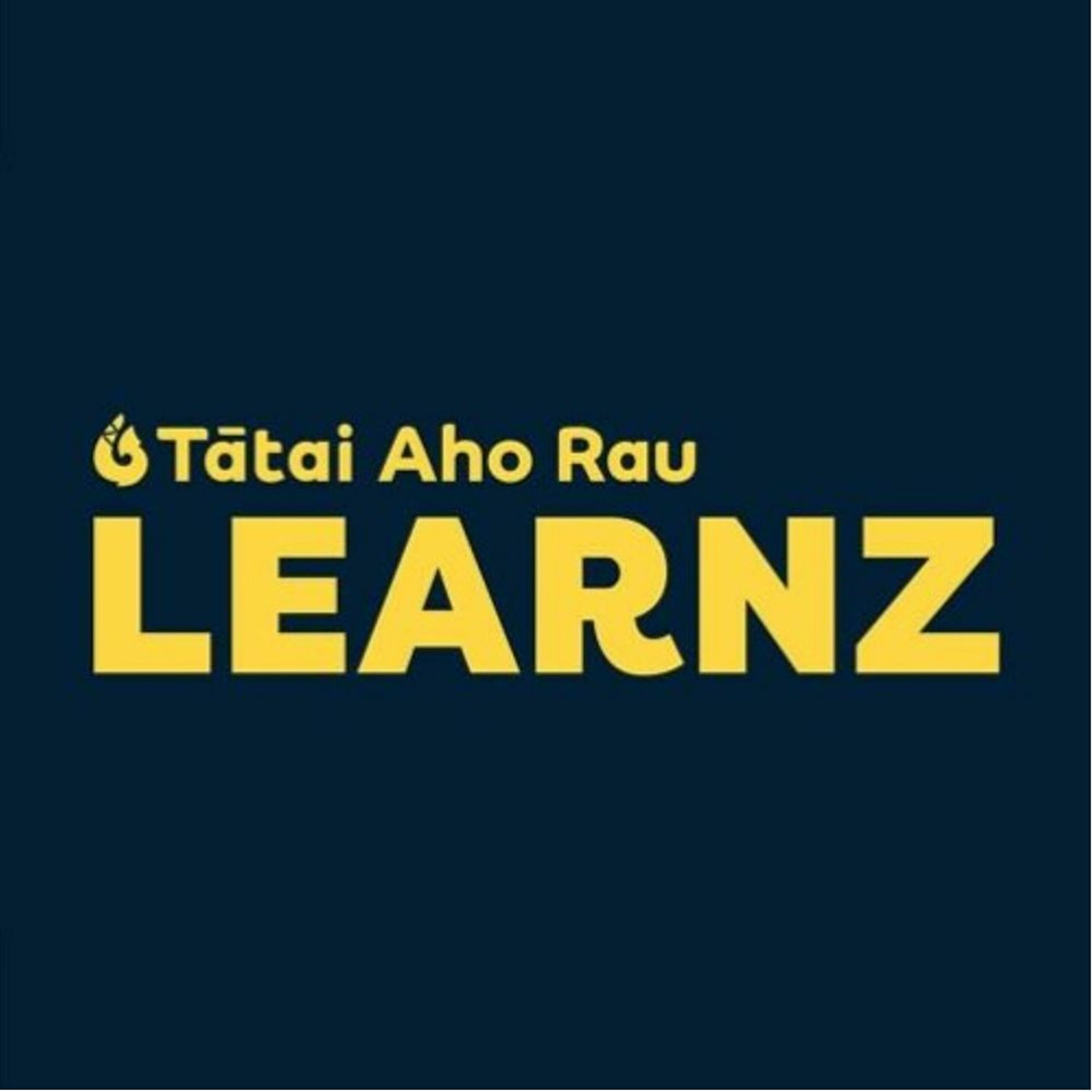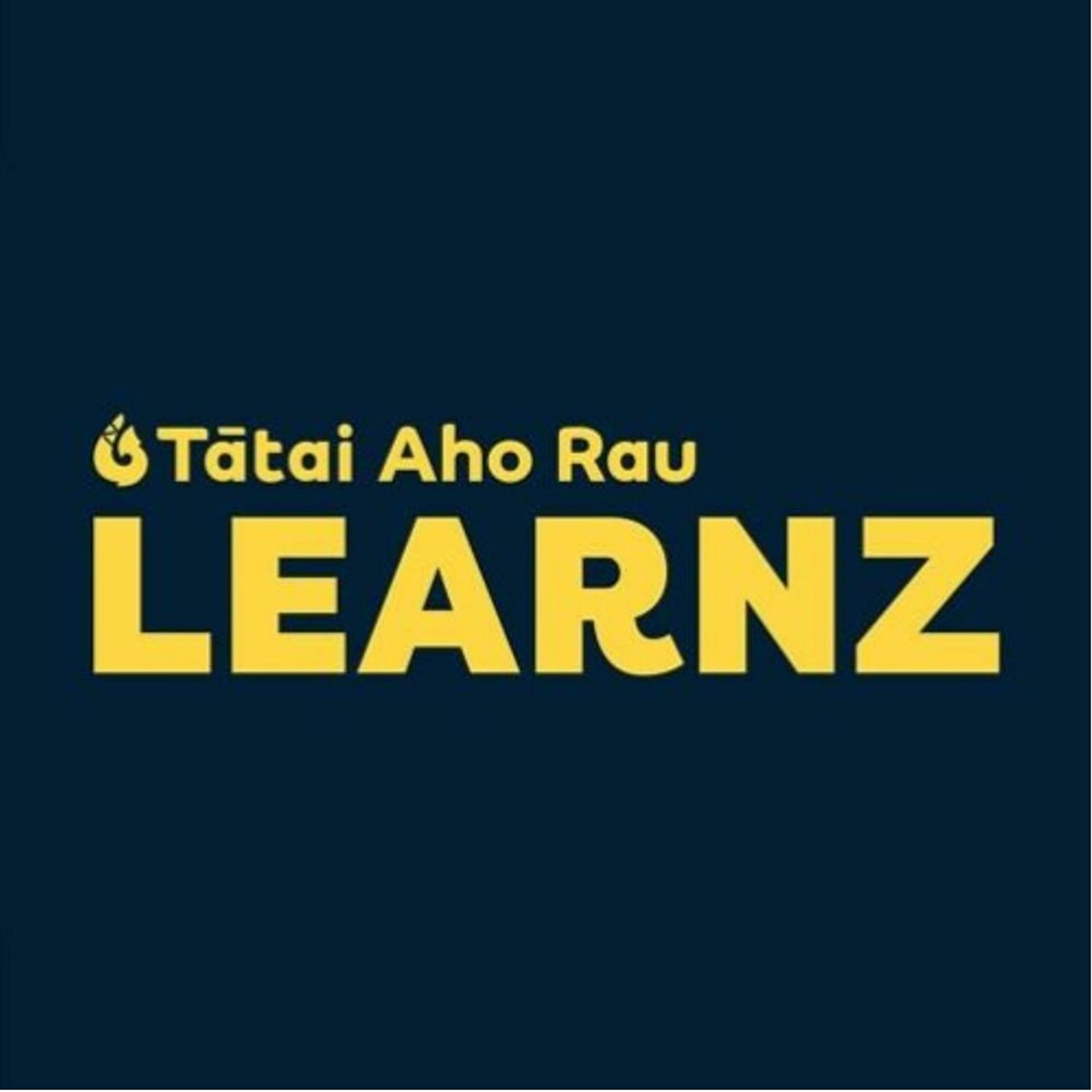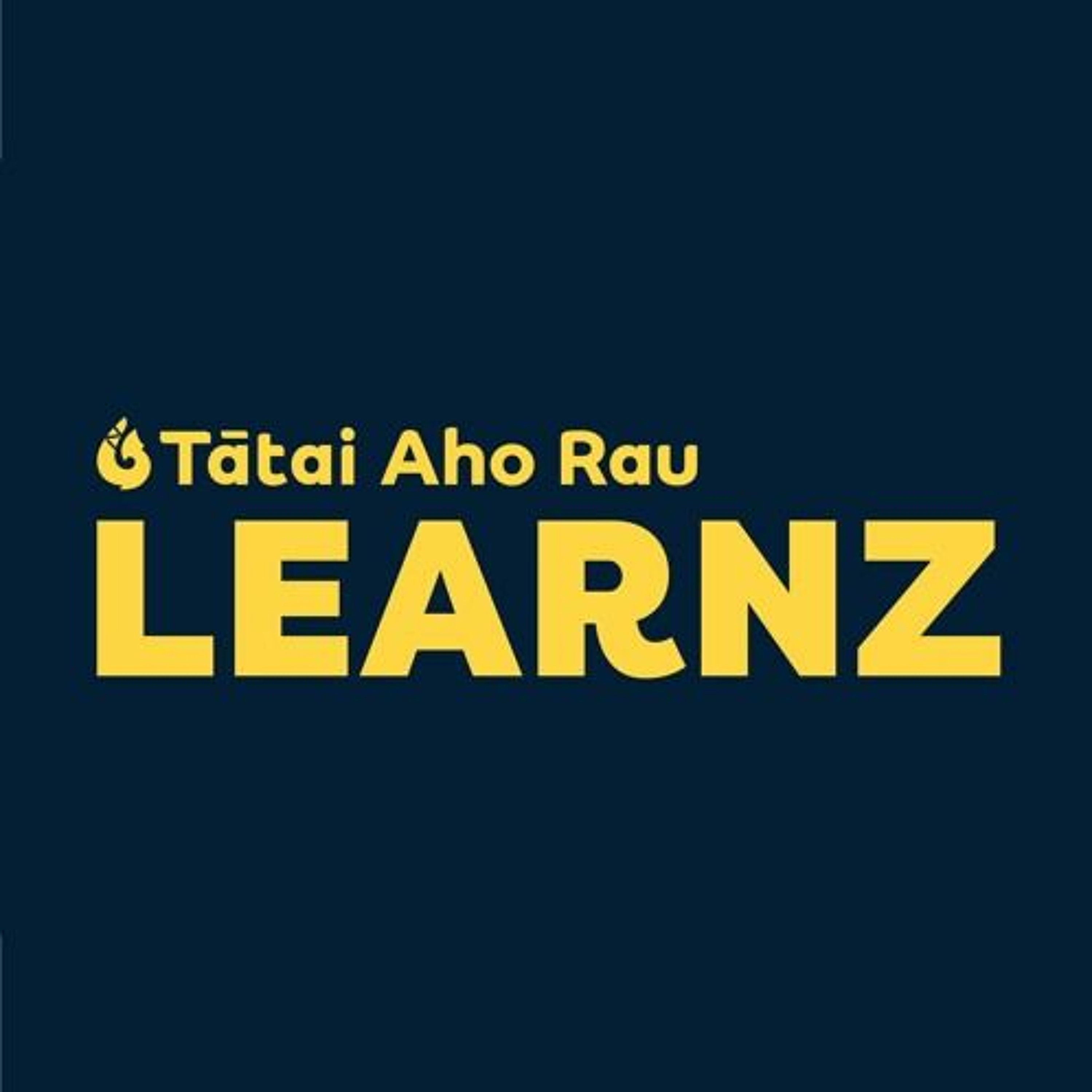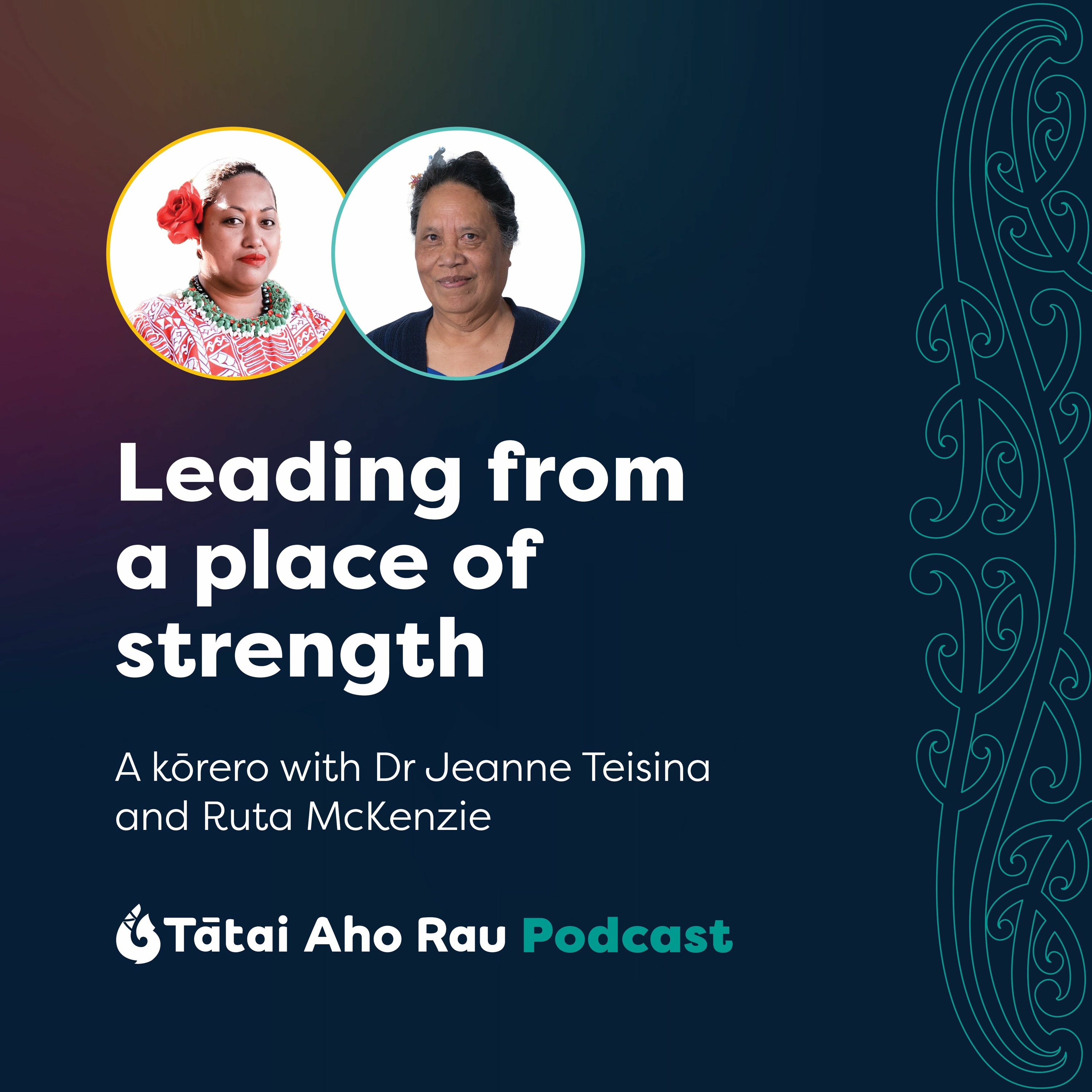Discover Tātai Aho Rau Core Education
Tātai Aho Rau Core Education

Tātai Aho Rau Core Education
Author: Tātai Aho Rau Core Education
Subscribed: 527Played: 1,454Subscribe
Share
© All rights reserved
Description
Tātai Aho Rau Core Education is a trusted national provider of high-quality, learning-related products and services. We have an established reputation working in ways that are Te Tiriti-honouring, learner-centred, collaborative, inclusive, future focused and innovative.
Our work is with individuals, learning communities (early years to secondary), mana whenua, iwi and hapū, Pasifika, corporate businesses, NGO's, Government departments, and ministries.
Our work is with individuals, learning communities (early years to secondary), mana whenua, iwi and hapū, Pasifika, corporate businesses, NGO's, Government departments, and ministries.
448 Episodes
Reverse
In this podcast, Angela Vermeulen is joined by Dr Hana O’Regan, ONZM, Tumu Whakarae | Chief Executive Officer of Tātai Aho Rau, and Leighton Evans, Chief Executive Officer of the Rātā Foundation, exploring the topic of equity and discussing their own personal experiences.
Drawing on their personal experiences, Hana and Leighton discuss instances of racism, sexism, and other inequities they encountered growing up. They share their visions of a socially just and equitable world and suggest ways we can foster fairness for future generations.
Hana and Leighton also clarify the confusion between equity and equality, highlighting initiatives their organisations undertake to promote equity.
Tune in for an insightful kōrero with these inspiring leaders as they share their perspectives on creating a more equitable society.
Join Fiona Summerfield and Suzi Gould as they kōrero about their journey to becoming good allies as Pākehā in Aotearoa.
Fiona and Suzi share their personal experiences of recognizing their pākehā privilege in Aotearoa New Zealand. They discuss moments of realisation, such as understanding how the education system favours pākehā and learning about the discrimination present in basic activities like finding a rental property. They also explore the challenges of recognizing systemic inequities, especially for those who benefit from the system.
In their discussion, Suzi and Fiona highlight the importance of actions in being an authentic ally to Māori, Pacific peoples, and other marginalised groups. They acknowledge the difficult aspects of being an ally, such as calling out racism and using one's voice in spaces where these groups are excluded.
Tune in to our latest episode where Tātai Aho Rau kaimahi, product designer Tumama Tu’ulua and learning experience designer Karl Summerfield, explore the creation of the Equity review tool; He Waka Houkura. Inspired by Maya Angelou's words, "Do the best you can until you know better and when you do know better, do better," they explore what equity truly means and how it differs from equality.
In this insightful discussion, Tumama shares his design approach for the equity self-review tool, while Karl reflects on its evolution from an educational focus to a broader audience. Discover what sets this tool apart, as they highlight its grounding in Aotearoa New Zealand's principles, notably Te Tiriti o Waitangi, making it essential for any organization operating in Aotearoa.
Kia ora! Celebrate connecting with our seas (Seaweek 2024) by embarking on an immersive journey into Tamatea Dusky Sound with us.
On this virtual field trip we will uncover unique ecosystems above and below the water, cultural heritage and conservation efforts. This experience provides educators and ākonga with a wealth of engaging resources, including videos, images and GIS maps to enhance your learning adventure.
Objective
Our goal is to inspire and educate ākonga across Aotearoa about the importance of preserving and restoring marine and land biodiversity in the unique Fiordland ecosystem. Through this virtual field trip, we aim to foster a deeper connection to te taiao, equipping ākonga to become active stewards of their local natural environment.
Key learning
Understand the complexity of marine and forest ecosystems and their vulnerability.
Explore the interconnectedness of forest and marine ecosystems.
Promote biosecurity awareness and action.
Embrace the importance of kaitiakitaka o te taiao and kaitiaki – environmental guardianship and guardians.
Student-led inquiry
Empower your ākonga to take charge of their learning journey. Encourage them to ask meaningful questions, explore resources, and embark on their own conservation projects.
Curriculum alignment
This virtual field trip aligns with the refreshed New Zealand Curriculum. It covers a range of learning areas, predominantly science and social sciences. Access guidance to support teaching and learning with a suggested framework, reflective questions, and activity ideas to complement the virtual field trip and align with curriculum goals.
Enjoy this engaging kōrero with Maria Lemalie, Tumuaki | Principal of Te Aratai College and Lena Tuiloma. Maria shares her personal experiences, shaped by her Samoan heritage and family's migration to Aotearoa New Zealand.
Discover Maria's unique approach to leadership, influenced by Samoan cultural values, and gain invaluable advice for leaders, both Pacific and non-Pacific. From building growth and inspiring others to the power of allyship, this podcast offers an exploration of leadership, diversity, and collaboration in education.
About this trip
Kia ora! Join us on an immersive journey to locations around Ōtepoti Dunedin to find out about the population recovery of pakake New Zealand sea lion. Did you know, until 1993, no pups had been born on the mainland for 150 years? Find out about "Mum", the legendary mother sea lion who travelled 600km from the Auckland Islands to found a small but growing population on the mainland.
Meet iwi who have stories about pakake that go back generations. Find out how local rūnaka are rediscovering lost mātauraka and contributing to the protection of this endemic species. Meet scientists and other conservationists and find out why they are excited about the latest developments around this special mammal. This interactive field trip provides educators and ākonga with a wealth of engaging resources, including videos, images and GIS maps, to enhance your learning adventure.
Objective
Our goal is to inspire and educate ākonga across Aotearoa about the importance of saving our native marine species and the heritage stories that surround them. Through this virtual field trip, we aim to foster a deeper connection to te taiao, including marine environments. We hope young people will learn to value and respect our sea lions as they grow to understand their importance to the health of our oceans and to the unique culture of Aotearoa.
Key learning
Gain insights into mātauraka Kai Tahu, highlighting a historical connection to pakake.
Understand the complexity of marine ecosystems and their vulnerability.
Explore the interconnectedness of pakake New Zealand sea lions in the marine food web.
Understand the different points of view people have about marine life.
Foster understanding and raise awareness of our precious taoka species.
Student-led inquiry
Empower your ākonga to take charge of their learning journey. Encourage them to ask meaningful questions, explore resources, and embark on their own conservation projects.
Curriculum alignment
This virtual field trip aligns with the refreshed New Zealand Curriculum. It covers a range of learning areas, predominantly social sciences and science. Access guidance to support teaching and learning with a suggested framework, reflective questions, and activity ideas to complement the virtual field trip and align with curriculum goals.
Join Jamie Taylor in an insightful kōrero with Julia Wikeepa, CEO of Hā Habit and Hauora educator, as they delve into the essence of hauora | wellbeing, with a special focus on harnessing the power of hā | breath for mindfulness.
Discover Julia's personal journey from struggles with low mood, anxiety, to finding solace and growth through mindfulness practices. Hear how her experiences, including her son's mental health challenges, inspired her to embark on a path of self-discovery and eventually lead her to establish Hā Habit, a platform dedicated to supporting others on their wellbeing journey. Julia also shares valuable insights on how whānau and educators can incorporate breathwork and mindfulness practices into their routines to nurture emotional resilience in children.
Tune in for an enriching dialogue that offers actionable strategies and heartfelt wisdom for cultivating holistic wellbeing in everyday life.
Join Karl Summerfield and guest Lex Davis, Deputy Principal at Ormiston Senior College, as they explore the world of teaching in Aotearoa. Lex shares insights on the power of authenticity in the workplace, explaining how being your true self as a tumuaki or kaiako can lead to meaningful connections, even if it means embracing vulnerability. Discover how authenticity paves a way for success as a kaiako and gain valuable perspectives on the rewards of genuine self-expression.
In this episode, Maraea and Janelle discuss the impact of language, culture, and identity on Māori athletes' success from grassroots to international success. They unpack the power of connecting tamariki with their cultural heritage through reo Māori, leading to enhanced academic achievements. Janelle shouts the praises of the next generation, together shaping a future workforce that aligns with the principles of te ao Māori.
Enjoy this insightful podcast with Kathe Tawhiwhirangi and Derek Wenmoth, the visionary founder of FutureMakers and principal consultant at Tātai Aho Rau Core Education. In this podcast, Derek and Kathe unpack the shift towards prioritising learners in educational practices, celebrating the uniqueness of every ākonga. Discover Derek's perspective on education as a fundamental right for all and its relevance in today's dynamic educational landscape.
Join Dr. Hana O'Regan and Leah Te Whata in our podcast as they kōrero on how to live out the Treaty of Waitangi in your day-to-day life.
Enjoy our te reo Māori kōrero.
Join Dr. Hana O'Regan and Leah Te Whata in our podcast as they give practical advice on live out the Treaty of Waitangi in your day-to-day life.
Discover the significance of this practice and gain invaluable insights through their three-step approach:
- Develop a mindset.
- Design an equitable plan.
- Take action.
Tune in for practical and inspirational guidance on how to make Te Tiriti o Waitangi a part of your daily life.
Kipa Munro from Ngāti Rehia answers questions from schools in Te Reo Māori.
Kipa Munro from Ngāti Rehia answers questions from schools in Te Reo Māori.
The following questions are answered by archaeologist Andrew Blanshard in this LEARNZ web conference about archaeology and heritage conservation in Aotearoa New Zealand.
1. How did archaeologists know where to start looking for the pieces of history in the first place?
2. What kind of tools do archaeologist use? What is the purpose of the red and white ruler in the picture?
3. When did the archaeologists find moa bones?
4. How did they carve the obsidian rock & shells?
5. What were the ‘oral traditions’ held by Ngāti Kuta?
6. Where did the archaeologists find the pāua shell?
7. Why did they make fishhooks and tools out of shells and obsidian rocks?
8. What tools did they make? And why did they change?
9. Was it hard for the early Polynesian people to adapt to New Zealand’s climate? What did they use to make clothing?
10. What does it mean that ‘One-piece fishhooks as a tool become less prominent through time’?
The following questions from schools are answered by museum curator Kate Martin about first contact between Captain Cook and Māori in Te Pēwhairangi Bay of Islands:
1. How long did the Endeavour stay in the Bay of Islands?
2. Why did the Crew of the Endeavour shoot at the locals? How did they feel about that?
3. Did Captain Cook gain trust of the locals? How did he do that?
4. Were there things given from Māori and if so, what has happened to these?
5. Were guns traded and what happened to those guns? How did the locals use these?
6. How did the Europeans and Māori communicate and get what they needed?
7. Did any of the people Cook meet come on board the Endeavour? If not, why?
8. What did Captain Cook and Joseph Banks learn from the locals?
9. How did the visit to the Bay of Islands help Cook in his map making?
10. Was there more than one opportunity to meet? Did Captain Cook meet Bay of Islands locals again at another time?
#3
Enjoy our latest kōrero with Dr. Jeanne Teisina and Tinā Ruta McKenzie as they explore the 'api lens in Tongan culture. Learn about how education can capture the essence of being Tongan, cultivating a sense of profound cultural identity in children. Dr. Jeanne advocates for curriculum alignment with Pacific heritage, empowering the younger generation to celebrate their roots and lead from a place of strength.
Join Kathe Tawhiwhirangi as she has a kōrero with Derek Wenmoth, the founder of FutureMakers and principal consultant at Tātai Aho Rau Core Education.
Derek and Kathe explore many topics in this podcast, such as the important, positive and recent shift of putting learners at the centre of our educational practices, as well as a growing understanding of the uniqueness of each individual ākonga. Derek also speaks briefly about education as a fundamental right for all, and what it means in today's educational landscape.
This podcast also explores some of the overarching concepts explored by the first three Kaihautū | Keynote speakers of uLearn23: David Letele, Pania Newton, and Cha’nel Kaa-Luke. Themes of identity, adversity, and education spark the question of why some learners excel when others don’t, and what educators can do to ensure that all ākonga succeed.
Join Tutuila Lio Va’auli, Pacific Strategic Lead at Tātai Aho Rau, and Penina Ifopo, director of Falelalaga Cultural and Education Centre, as they talanoa about the Falelalanga kaupapa of connecting spiritually, holistically, and educationally to Samoan culture through weaving.
Tutuila and Penina explore a wide range of topics within this podcast, such as Penina’s richness of experiences from her upbringing in the village of Musumusu, Samoa, the journey of New Zealand born Samoans in blending their cultures and identities, and how Falelalanga creates a safe space for all to connect with their Samoan heritage.
Penia also speaks about how we can deliver Falelalanga in Aotearoa and how educators can use the ideas of Falelalanga in the classroom, including educators being more responsive and understanding of the culture of their ākonga, and the exciting future of Falelalanga.
 United States
United States

















i appreciate your efforts and i am also working on a education project and helping students you may check https://10thclassresult.site/